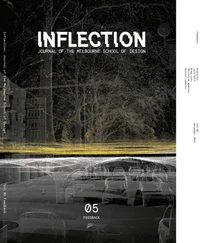Pete Cawdron - Feedback
Здесь есть возможность читать онлайн «Pete Cawdron - Feedback» весь текст электронной книги совершенно бесплатно (целиком полную версию без сокращений). В некоторых случаях можно слушать аудио, скачать через торрент в формате fb2 и присутствует краткое содержание. Жанр: Фантастика и фэнтези, на английском языке. Описание произведения, (предисловие) а так же отзывы посетителей доступны на портале библиотеки ЛибКат.
- Название:Feedback
- Автор:
- Жанр:
- Год:неизвестен
- ISBN:нет данных
- Рейтинг книги:4 / 5. Голосов: 1
-
Избранное:Добавить в избранное
- Отзывы:
-
Ваша оценка:
- 80
- 1
- 2
- 3
- 4
- 5
Feedback: краткое содержание, описание и аннотация
Предлагаем к чтению аннотацию, описание, краткое содержание или предисловие (зависит от того, что написал сам автор книги «Feedback»). Если вы не нашли необходимую информацию о книге — напишите в комментариях, мы постараемся отыскать её.
Feedback
Feedback — читать онлайн бесплатно полную книгу (весь текст) целиком
Ниже представлен текст книги, разбитый по страницам. Система сохранения места последней прочитанной страницы, позволяет с удобством читать онлайн бесплатно книгу «Feedback», без необходимости каждый раз заново искать на чём Вы остановились. Поставьте закладку, и сможете в любой момент перейти на страницу, на которой закончили чтение.
Интервал:
Закладка:
The wind howled across the cliff and out over the ocean, which was good, as that would disperse his scent, carrying it out to sea, making it harder for the soldiers to pick up on his trail with the dogs.
Lee was worried about the helicopters. There were at least three of them. If they caught him in the open, the game would be over.
He struck up a light jog, avoiding the temptation to run madly, wanting to put some distance between himself and the search party but knowing he had to pace himself.
By mid afternoon, he estimated he’d covered roughly ten to fifteen kilometers. The helicopters had long since disappeared. Occasionally, he’d catch a glimpse of one climbing high above the plateau behind him, flying inland. That several helicopters had come and gone by the same route suggested their base was in that general direction. Hopefully, that’s where the soldiers were from as well, he thought.
The windswept coast gave way to rugged bushland with little in the way of walking tracks, slowing his progress. His clothes were damp and began chafing against his neck, underarms and thighs.
Lee came across a clearing bathed in sunlight. He stopped, stripped down to his underwear and hung his clothes out to dry as he rested in the warmth of the sun. For a moment, lying there with his eyes closed, he could almost imagine he was safe.
The clearing was on the leeward side of a hill overlooking one of the numerous inlets along the rugged North Korean coast. With the sound of birds calling in the trees and the wind gently rustling the leaves, Lee drifted off to sleep, exhausted.
He woke, shivering.
Clouds covered the sky. The temperature had dropped. Another storm loomed overhead.
Lee dressed and continued on his way. Across the bay, he could see a fishing village. Several boats were docked against a rough wooden pier. Fishermen tended to their nets, stringing them up on poles and repairing any tears or holes in the fine mesh. Women toiled in fields beyond the village, gathering crops. Children played on the muddy ground, kicking around what looked like a soccer ball.
He had to escape. Crossing the most heavily guarded border in the world, with two armies separated by the largest minefield ever devised was suicide, but if he could steal a fishing boat in the dead of night he stood a chance. Having a plan encouraged him. For the first time since he washed up on shore, Lee felt as though he was going to make it home.
As he followed an animal trail he came across a muddy track winding its way up from the coast. Creeping through the undergrowth, he walked parallel to the track for a few minutes before hearing the neighing of a horse in distress.
Lee froze and hid behind a fallen tree for several minutes, waiting to see if someone was coming along the worn track.
The animal’s cries were muffled by the wind rustling the leaves. The anguished neighing faded with the shifting breeze, and he wondered if the cries he could hear were his imagination toying with him.
The bush track had been cut into the steep hill in several places, and sections of the embankment had collapsed, blocking the path. Lee could see the slips were old, with horseshoe prints and cart tracks climbing over them. Further down the slope, fresh mud and rocks spread out, having slid down from above.
Lee could hear a woman’s voice, crying out for help, barely audible over the ghostly howl of the coming storm.
Cautiously, he stepped down onto the track and peered over the edge. There, pinned beneath a shattered wooden cart, lay a young woman.
She saw him.
Instantly, she reached out with both hands, pleading for him to help her, and Lee found his mind flashing back to the young girl he’d rescued months before. This woman had the same look in her eyes; a plea for pity. He couldn’t turn away. He had to do something, even if it meant risking capture. He couldn’t leave this woman to die.
“Hold on,” he called out, starting to negotiate the slippery terrain.
The cart must have slid off of the side, dragging the horse down with it. Clumps of dirt had been dug out of the side of the hill, marking where the horse had fought to stay upright. The mare lay on her side some thirty feet below the makeshift road. Her front leg must have broken in the fall. Blood pooled and clotted from a gash on the shoulder of this once proud horse.
Darkness descended.
Rain fell.
Thunder rumbled in the distance.
Lee grabbed at the thin tree trunks and branches as he slid down the steep, muddy bank, his boots sliding on the loose rocks and stones. He dug in his heels, slowing his descent. A small avalanche of pebbles and dirt followed behind him, covering his boots.
“Hang in there,” he cried. “You’re going to be fine.”
As he came down beside her, he saw a look of terror sweep across her face.
“No,” she cried.
“Hey, it’s OK,” he said, holding out his hands in a gesture to demonstrate he meant no harm. He realized his uniform, his South Korean accent, and the mud and grime covering his face must have terrified her.
She wriggled, trying to free herself, trying to pull away from him.
“I’m not going to hurt you.”
There was so much misinformation, so much distrust, so many myths. She had probably never seen anyone from South Korea before, but she would have heard the propaganda, the lies intended to isolate the North Koreans from the outside world.
Lee wasn’t one to cling to ideologies. Back in the 50s, merely attending a communist meeting in the south was enough to have someone lined up before a firing squad, even if they’d only gone there for the free rice. For decades, both sides had lived in fear of each other. Lee hated how his country had been cut in half by something as arbitrary as a line on a map. The North had been taught to fear outsiders, to fear the differences regardless of how irrational that was. To Lee, fear was the real enemy.
In that moment, he saw the realization in her eyes. She understood he just wanted to help. She must have seen the compassion of one human being for another, regardless of ideology. She took a deep breath, relaxing.
Lee crouched down, looking at the cart. Her leg was pinned under the rear wheel. He tried lifting the cart, but the horse was lying on the front corner, pinning the shattered wooden frame. The horse shifted its weight, but was in danger of dragging them all further down into the gully. Water poured down from above, running in a stream over the hind flanks of the crippled beast.
Looking around, Lee found an uprooted tree, a sapling not more than six feet in length. He wedged one end of the slender trunk beneath the cart and pried at the frame, trying to gain some leverage on a large rock. Slowly, the cart lifted and the woman pulled herself from beneath the wheel.
Lee was breathing hard has he dropped down beside her. She was grimacing in pain, but she forced out two words, “Thank you.”
From the awkward angle her foot was at and the swelling below her knee, he knew she had broken her fibula bone, but the break hadn’t broken through the skin, which was good. Hopefully she’d avoid infection.
“Please, don’t be afraid. My name is John Lee. I am a captain with the South Korean Coast Guard.”
The woman nodded. He’d expected her to introduce herself, but she didn’t. He wasn’t sure if she was shy, if she felt intimidated by someone who was ostensibly her enemy, or if this was some kind of cultural protocol between men and women in North Korea, but she looked away as though she were embarrassed. On thinking about it, he realized any South Korean would probably feel as confused and dazed if they were suddenly rescued by a North Korean soldier, so her response was understandable.
“Listen. Your leg is broken. I need to make a splint or I’m going to cause more damage when I move you. Do you understand?”
Читать дальшеИнтервал:
Закладка:
Похожие книги на «Feedback»
Представляем Вашему вниманию похожие книги на «Feedback» списком для выбора. Мы отобрали схожую по названию и смыслу литературу в надежде предоставить читателям больше вариантов отыскать новые, интересные, ещё непрочитанные произведения.
Обсуждение, отзывы о книге «Feedback» и просто собственные мнения читателей. Оставьте ваши комментарии, напишите, что Вы думаете о произведении, его смысле или главных героях. Укажите что конкретно понравилось, а что нет, и почему Вы так считаете.












